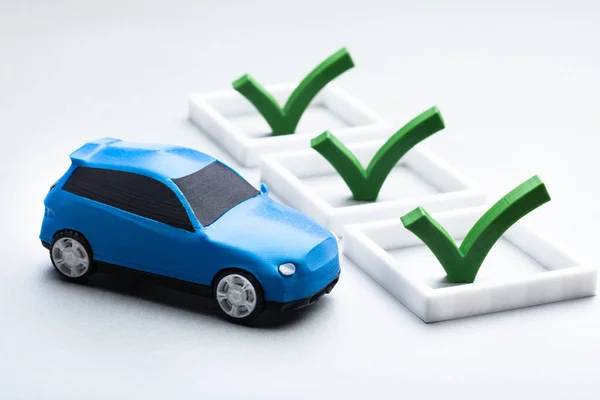Car History Check: What to look out for?

Buying a used car can sometimes feel like a risk. That’s why conducting a vehicle history check should be a no-brainer for every used car buyer. This in-depth report can reveal or confirm critical information about a car, such as mileage discrepancies, whether it has ever been written off, or, more important than ever, if the car has outstanding finance.
With that in mind, here are the most important factors to consider as part of a
vehicle history check on Cartell.ie:
Outstanding finance
One crucial aspect that not many people are aware of is that if you buy a car with outstanding finance, it’s not legally yours until the final payment has been made. Regardless of whether you’ve purchased it in good faith, the car remains the property of the lender who financed the purchase. If the original PCP holder defaults on their payments, the lender is legally entitled to repossess the vehicle, leaving the innocent second buyer with little to no recourse, especially if they’ve bought the car from a private seller. Never buy a car with outstanding finance; a vehicle history check can help ensure you don’t.
Mileage
Most of us have heard of the old trick known as ‘clocking,’ where a seller tampers with the odometer to make the car appear to have covered fewer miles than it actually has, thereby increasing its price. A vehicle history check from Cartell sources multiple mileage records from numerous sources. A buyer can then compare the figure with the car’s odometer reading to check for discrepancies. If there is a discrepancy, it’s a strong indication that the car has been clocked and that you’re dealing with a dishonest seller. If so, walk away.
Has the car been written-off?
When a car is involved in an accident, the insurance company can deem it a write-off if the car is either too irreparably damaged to be safely returned to the road or if the cost of repairs exceeds the car’s value. In Ireland, there are four categories of write-offs: Category A, B, C, and D. Category A and B write-offs are cars so badly damaged that they must be scrapped. Category C and D write-offs are cases where the insurance company has determined that the repair costs exceed the car’s value, but the car can be legally allowed back on the road. A vehicle history check may inform a prospective buyer if a car has ever been written off in Ireland or the UK, which is crucial information
While it’s not necessarily a deal-breaker to buy a former write-off, it pays to be cautious. For example, an insurer may refuse to cover a previously written-off car or charge such a high premium that it may not be worth buying. It’s essential to ensure that a car has been properly repaired after significant damage, as a
poorly repaired car may not perform as it should in a crash. This is why buyers of write-offs need to be extra diligent when inspecting a used car before purchase. If a seller does not disclose that a car is a former write-off, it could be a sign they’re being dishonest. If they’re hiding that fact, what else could they be concealing about the car?
Number of owners
At the time of writing, there are 18,260 cars in Ireland that have had 10 or more registered owners. In fact, according to Cartell’s data, there’s an Audi A6 somewhere in Ireland with 43 registered owners! A car history check will reveal how many owners a car has had. While this may not be vital information, it is
worth knowing. Be realistic in your expectations for an older car with a higher number of owners. However, if you’re satisfied that the car is in sound condition and as described, there’s no particular reason to avoid a vehicle with a high number of owners. Again, the importance of knowing the number of owners comes back to the honesty of the seller. If they claim that a car has had one or two owners from new, but the history check reveals it has had several more, it means they’re being dishonest. If they’re lying about this, what other falsehoods could they be telling?
Was it ever used as a taxi?
Taxis typically have hard lives and often rack up high mileages, usually in urban environments. Taxi use can impose significant wear and tear on a car—think worn clutches, lots of crawling through traffic, and loads of passengers, plus that smell in the back you can’t quite figure out. Ideally, you don’t want a car that’s
had a previous life as a taxi. However, if you know it has and still decide to take the risk, that decision is yours. It’s important to know for sure, though, and a vehicle history check can reveal whether or not a car has had a demanding working life.